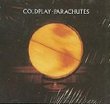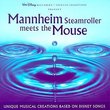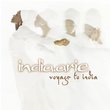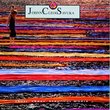| All Artists: Camille Title: Le Fil Members Wishing: 0 Total Copies: 0 Label: Narada Original Release Date: 1/1/2006 Re-Release Date: 6/6/2006 Genres: International Music, Pop Styles: Europe, Continental Europe, Adult Alternative, Euro Pop, French Pop Number of Discs: 1 SwapaCD Credits: 1 UPCs: 094635970128, 094634917452 |
Search - Camille :: Le Fil
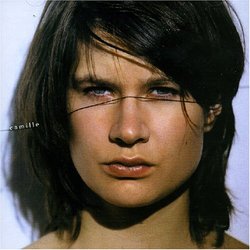 | Camille Le Fil Genres: International Music, Pop
The Second Studio Album from the French Pop Star who Enjoys a Wide Audience Not Just in France but in Japan as Well. |
Larger Image |
CD DetailsSynopsis
Album Details The Second Studio Album from the French Pop Star who Enjoys a Wide Audience Not Just in France but in Japan as Well. Similarly Requested CDs
|
CD ReviewsMinimalism at its best Leah Bush | 08/06/2006 (5 out of 5 stars) "Camille Dalmais is essentially a minimalist, and the revelation of this occurs at exactly 23 seconds. Two lines in, and a choir of whispering voices surrounds your ears. Two minutes in, and you wonder exactly what you've gotten yourself into. "Le fil" (literally, "the thread") is the single soft tone held throughout the album, tying the songs together. It is a constant presence, weaving in and out of hearing, and extending roughly 30 minutes past the last notes of "Quand Je Marche," (When I Walk) with 30 seconds of French for the very patient among us. The whole is far from monotonous (or even in the same key). It is immediately accessible, thoroughly modern, and thoroughly French. Yes, French music exists that does not have any relation to the accordion. But despite the title, it is Camille's voice that takes center stage, as she is mostly accompanied by ...herself. Most instrumentation is replaced by vocal noises and samples, and her live shows encourage the audience to join in the experimentation. The obvious comparison is Bjork's Medulla - but Camille's parameters are far more self-defined, creating more of a complete whole. "Senza" and the three "Janines" are short experiments in sound and rhythm, where her voice ranges from sweet to downright (albeit charmingly) nasty. Her slightly high-pitched singing is as also striking - it is generally hard to believe that it could have any relation to the arresting gaze of woman on the front cover. However, she is far from shy about putting her concept in front of you; "Ta Douleur (Your Pain)", the first single, is accompanied by thoroughly Gallic vocal inflections (yes, this includes retching, wailing, and burping). The appropriate accompanying video shows the singer being wound and unwound in an outfit consisting solely of a blue thread. The final three songs on the original French release - "Pale Septembre," "Rue de Menilmontant," and "Quand Je Marche" blend into a flawless finale. Love gained, love lost, and and in the end one walks away. Fluency isn't necessary to enjoy Le Fil, but an understanding of French definitely makes it more interesting. Many songs are self-contained stories or wordplay. The heroine of "La Jeune Fille Aux Cheveux Blancs" is not a gamine but a murderess, and of course "Janine I" includes the amusing couplet "Why do you call me Don Juan when I have such a tiny...?" (use your imagination). The only English occurs in a few phrases on "Baby Carni Bird." For the curious, her voice is almost entirely different when singing in English - this is proved by her covers of "The Guns of Brixton" and "Too Drunk To ****" from the Nouvelle Vague project. Le fil is finally getting a stateside release (it hit the streets in France over a year ago), and is a gem that is definitely worth the time it takes to find. Recommended: "Ta Douleur," "Au Port," "Janine III."" The initial arc of a star's flight Peter Prisekin | Merrifield, VA USA | 06/23/2006 (5 out of 5 stars) "This album is wonderful. First of all, and foremost, the foundation of any album is the music, and this album has catchy songs from beginning to end -- perfect little pop gems that are exactly as long as they need to be, no longer, no shorter. One should be in love with the human voice to fully appreciate this album, as it is used not only for the lead instrument, but percussive, harmonic, and many other instruments -- including "raspberry" as a percussive element -- but personally, the human voice is my favourite musical instrument, and I am very enamored of Camille's, specifically. Her timbre reminds me of a place somewhere between Kate Bush's high young-girly voice, Bjork's fearless vocal gymastics (although, not quite yodeling), and perhaps Mike Patton's sheer insane versatility. The overall production is somewhat sparse, with only the occasional bass, piano, drums and whatnot accompanying her multi-layered voice. She sings in French, so for those of you who feel you must understand the lyrics, this may not be for you. I don't understand French, and I do feel I am missing something, as she strikes me as clever enough to write interesting lyrics with the occasional brilliant turn of phrase, but I guess I will just have to learn French. She's also very adventurous, and without confidence, experimentation can fall flat on its face, but Camille has so much charisma it brings a tear to my eye. I would recommend this album to fans of Todd Rundgren's A Capella, Jean-Michel Jarre's Zoolook, Beth Gibbon's Out of Season, and the works of Les Paul and Mary Ford (e.g., "Mr. Sandman")." A beautiful recording S. P. Reader | Christchurch, New Zealand | 09/02/2006 (5 out of 5 stars) "This has been repeatedly on the CD player since it's purchase, alternating with Camille's Live au Trianon, which serves as a great companion to Le fil. The majority of the album is created by Camille's layered vocals with minimal instrumentation producing a rich tableau of sound with nuances to be discovered on each playing. Favourites songs on the CD are the rythmic Ta douleur and Au port, also the melancholy Pour que L'amour me quitte. The three bonus tracks are fine addition, Lumiere has a suprise finish (somebody's had fun in the studio.)"
|

 Track Listings (18) - Disc #1
Track Listings (18) - Disc #1